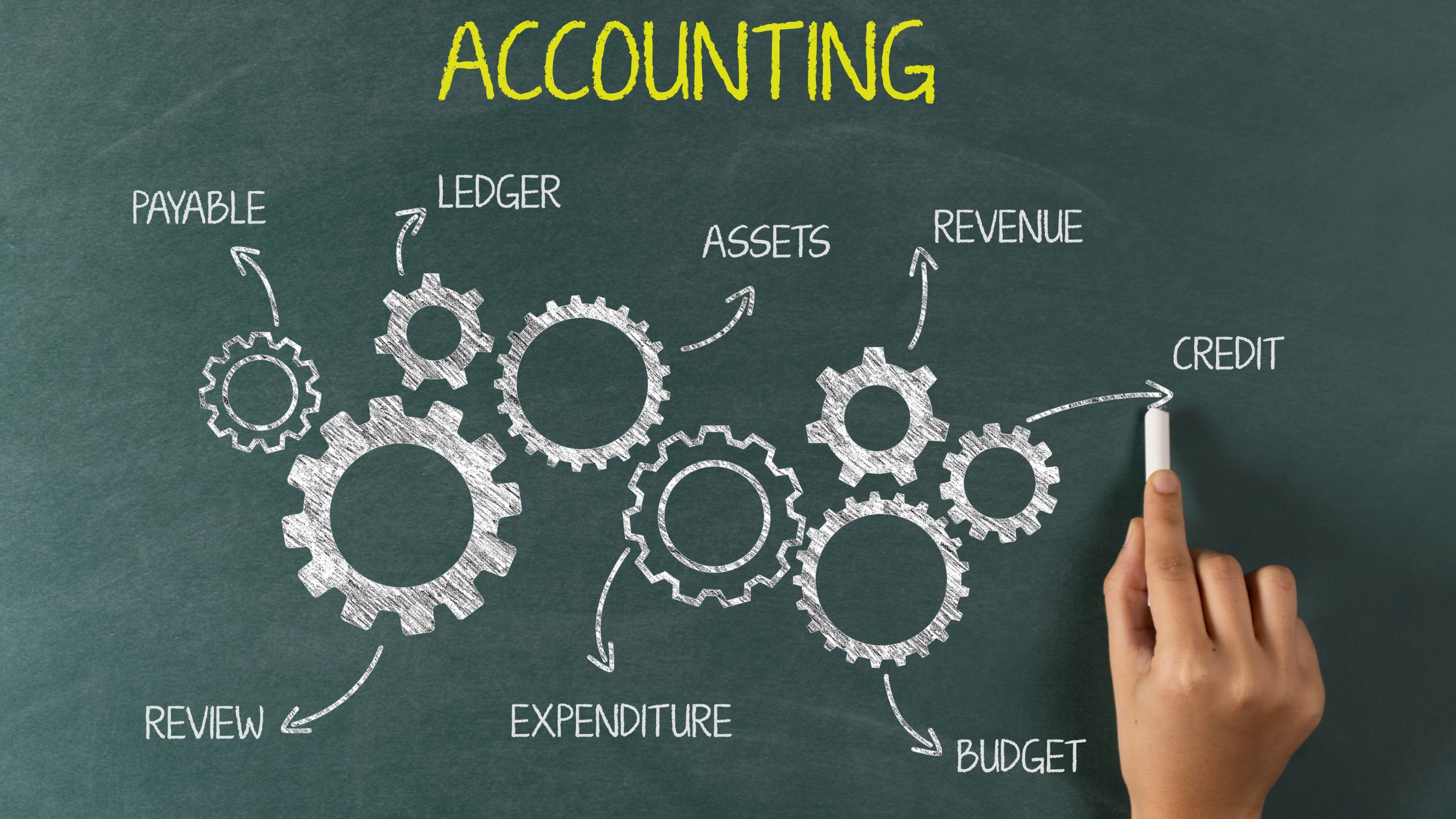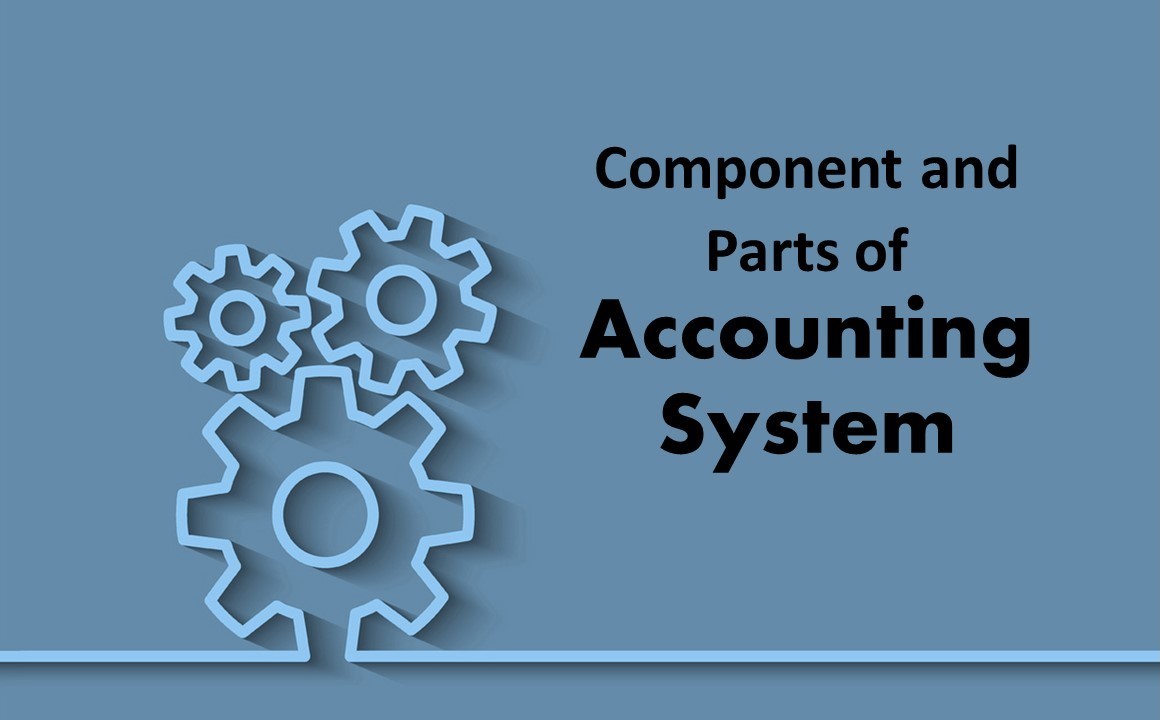Accounting components
Introduction
An accounting system is a computer program that assists accountants, CAs, and professionals in keeping records of the books of accounts and other financial transactions.
Every business, company, and enterprise needs software systems to manage their compliance, taxation, and automate receipts and payments and that is where the integrated software comes in.
Small business owners hardly work on any accounting system, except for viewing MIS reports because accounts and audits are mostly the concern of finance departments that accountants and CAs look after.
However, today’s accounting systems and the generation of software have come a long way, driven by technologies such as AI and available online. So it is easy for business owners to get their accounting data and access KPIs on mobile devices.

Because it allows business owners to get timely information on the go, accountants and CA’s can serve multiple companies from a single location.
We know of an accounting system in the business world as business accounting software because it allows a business to track, record, analyze, and interpret financial transactions and banking information and these software system allows business owners to take intelligent business decisions and accurate financial planning. Also, it is not only about financial analysis, most accounting software also provides access to inventory management.
Components of Accounting

a) Masters – Ledgers in Accounting System
A master is a form that stores all variables such as ledger accounts or all inventory such as products.
Without a ledger account, you cannot debit or credit a financial transaction. Therefore you need an entity and that entity is called a ledger that forms the basis of accounting.
So masters are forms to create all ledger accounts. For Example, if you want to define your bank account.
You have to define the name of your company’s bank in the software under a master form. So the name of the bank identifies your bank account and then identifies your bank account under a sub-category that is related to an accounting group bank.
This is how all ledgers form.
If you want to visualize all your ledger accounts you can check the Chart of Account which is a complete listing of all ledgers in your accounting software. All ledger accounts fall under a subcategory or an accounting group and you can create these groups under the accounting group master form.
Accounting groups comprise Debtors, Creditors, Expenses, Income, Stock, Bank, Cash, Taxes, Loans and Advances, and so on. Also, these accounting groups are essential to predefine groups that exist by default in any accounting software but accountants and business owners can create their own accounting groups as needed. So whenever you define a master your account ledger shall fall under a group that is either predefined or custom-defined.
b) Transactions – Vouchers in Accounting System
When you finish defining all your ledgers you can prepare easily all your accounting transactions within your software.
A transaction in accounting software involves two entities that fulfill a complete transaction. In any accounting transaction entry, two ledger entities get affected one becomes the debit and the other becomes the credit.
c) MIS Reports – Financial, Inventory, Payroll Reports
In any accounting software or system, Reports are a final component that shows the real timeline and actual performance of your business. Reports are processed through SQL queries internally and that is how businesses get immediate access to the reports on business and financial status.
Like any other form of Report, basic accounting and inventory reports are already there in any accounting system for business owners to take important decisions. The reports solve different purposes of businesses and organizations from business owners to users of accounting software across multiple branches and locations. Not all reports are necessary for all users of an organization. Hence good accounting software provides control of privacy and the flow of information.
Where the Admin can control and restrict access to masters, transactions, and reports that are not mandatory for a particular department or a user.
Reports such as financial statements, tax returns, final account reports, outstanding, cost centers, GST, and audit reports are all examples of accounting group reports.
Sales Registers, Pending Sales Reports, Sales Analysis Reports, and Sales MIS Reports are all examples of Sales Group Reports.
Purchase Registers, Pending Purchase Reports, Purchase Analysis Reports, and Purchase MIS Reports are all examples of Purchase Group Reports.
Inventory Registers, Stock Reports, Stock Monitoring Reports, Pending Inventory Reports, WIP Reports, Service Reports, and MIS Inventory Reports are all examples of Inventory Group Reports.
However, apart from these reports, the form of reports can be of several types in accounting software, and they are mostly available to businesses as:
- Dashboards
- KPI’s
- Predefined Reports
- Custom Reports
- MIS Reports
The most commonly used business accounting software system
A lot of people ask about what is the most commonly used Accounting Software by small accounting firms. Well, geographically there can be some specific accounting software that is largely in use in a particular country, But globally it may vary.
a) ZohoBooks

ZohoBooks is a product of zoho corporation, a software development company with headquarters in Chennai, India.
As per the official website, the Zoho product is trusted by more than 50 million users globally and runs with nearly 7,000 employees across the globe.
Zoho products come bundled with 40+ integrated applications. Ranging from Finance, Human resources, Business Intelligence, IT and Help Desk, Sales and Marketing, and Email Collaboration to Custom Solutions. Therefore ZohoBooks is only a part of the Zoho Bundle Apps that customers can use individually as per requirement and businesses can integrate with other apps as their business grows.
Hence, it is an all-in-one accounting and business solution for small businesses and you don’t have to purchase any other application separately.
b) QuickBooks

QuickBooks is an accounting software package developed and marketed by Intuit.
QuickBooks products are geared mainly toward small and medium-sized businesses and offer on-premises as well as cloud-based versions and as such, the software claims up to 85 percent of the small business accounting software market.
QuickBooks Online (QBO), is one of the leading business, and financial management software for small businesses and is now available also in India and its subcontinent.
Currently, QuickBooks Online has 2.2 mil users worldwide and is available in 192 countries. The cloud version is a distinct product from the desktop version of QuickBooks and it has many features that work differently than they do in QuickBooks desktop versions.
QuickBooks Online also offers integration with other third-party software and financial services, such as banks, payroll companies, and expense management software.
c) Xero

The company is founded in 2006 in New Zealand and today it is one of the fastest-growing software as-service companies globally. Xero is a cloud-based accounting software platform for small and medium-sized businesses and its products are used in over 180 countries.
Xero accounting software features include automatic bank feeds, invoicing, accounts payable, and receivables. It also features expenses and claims, fixed asset depreciation, purchase orders, bank reconciliations, and standard business and management reporting.
Xero also claims to have more than 200 secure connections with banks and financial service partners around the world and integrations with over 800 third-party apps and build your own stack of integrated apps to help run your business more smoother.
In Conclusion:
There are many more accounting systems and software that provide excellent support and services, but it is beyond the scope of this article to list all of them.
However, Zoho, QuickBooks, and Xero are top accounting software that is rapidly increasing their user base.